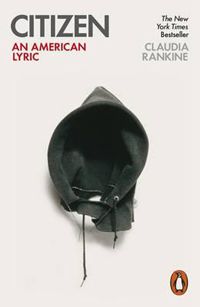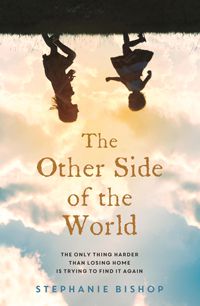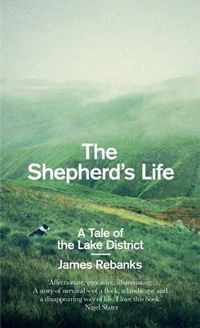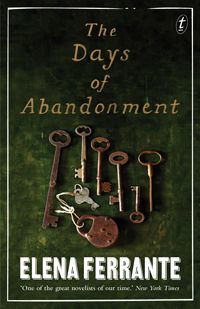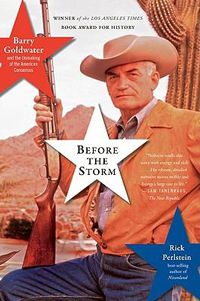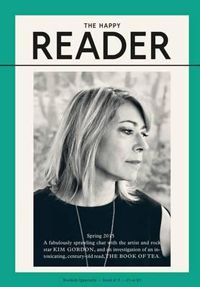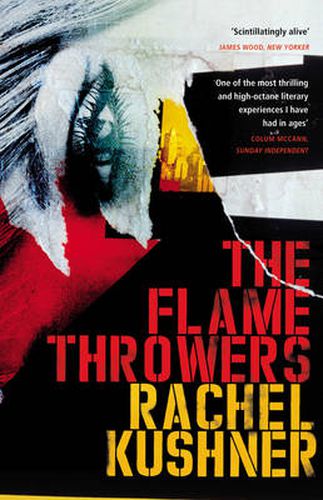What we're reading: Claudia Rankine, Elena Ferrante and James Rebanks
Each week we bring you a sample of the books we’re reading, the films we’re watching, the television shows we’re hooked on or the music we’re loving.
Bronte Coates is reading Citizen: An American Lyric by Claudia Rankine
Earlier this week, I read an amazing and upsetting article from Claudia Rankine about the Charleston shootings and ideas of public mourning. (You can find it here.) By the time I finished reading, I knew that here was another author I wanted to learn more about and from, and so I picked up my housemate’s copy of Citizen: An American Lyric.
This long prose poem recounts incidents of everyday racism, all drawn from Rankine’s own experiences, as well as anecdotes from her friends. Many of the milder instances of racism are all the more sinister for their apparent mildness – especially when placed within the same context as other elements such as a list of the names of black men recently killed by police in the US. As, Paula Cocozza wrote for the Guardian: ‘Soon, these small, private experiences … begin to accumulate. Their power is incremental, collective, claustrophobic, in the text as in life.’
You can read Cocozza’s full article (in which she chats with Rankine about the power of making private anecdotes public) here.
Citizen is a powerful, evocative read that impacted on me deeply; while reading on the tram I had to concentrate to stop myself crying from crying. It’s absolutely one of the best books I’ve read this year.
Alison Huber is reading The Other Side of the World by Stephanie Bishop
It’s almost completely pointless for me to add to the chorus of praise and excitement over Stephanie Bishop’s The Other Side of the World because it’s clear that we at Readings love it a lot… But, because I’m a bit late to the party and feeling a bit left out, I’m going to do it anyway.
Plus, I want to tell every closet cynic who might secretly think to themselves, ‘It can’t be that good’, that, oh yes indeed, it can. I started it late one evening this week, and read well into the night and long after I should have turned off my light. I was up early the next morning, with a plan to sneak a few extra chapters in on the tram, and read with tears in my eyes – so, yes, it’s that good.
Bishop’s prose is so accomplished, and the emotional lives of her characters so lovingly and honestly investigated. This is a book about longing and memory and the idea of home; I know as soon as I’m finished I’ll be wishing I could read it again for the first time. Please, join us in our love of this book.
And to you, Stephanie Bishop, you and your crazy, beautiful talent: I hope you’re ready for the ride ahead because it’s going to be glorious.
Ann le Lievre is reading The Shepherd’s Life: a Tale of the Lake District by James Rebanks
I love writing that paints a landscape. The Old Ways by Robert Macfarlane has one of my favourite all-time opening chapter. The author goes out very late on a pitch black wintry night to trudge up to the top of a hill behind his house, following the snow-deep prints of an animal. He is here to think, to reflect on the journey he has ahead. As I’m reading his words, I am all alert; the chill air permeates his writing and my imagination. There is also one of my favourite books so far this year: The Fish Ladder by Katharine Norbury in which the author takes me up stream, and down, in the ancient and wondrous landscapes of Wales and the Cairngorms National Park in Scotland.
Now I have The Shepherd’s Life by James Rebanks in my hands. Slow to start, it expands into a gentle and pertinent exploration of the shepherding practices of farmers in the Lakes District of England. Pertinent, because bit-by-bit the author describes how the abrupt demands of modern development rub against traditional farming ways. Rebanks’ family has farmed the area for more than six hundred years, and integral to his story is the picture he draws of his family circle, the unique connection he had with his grandfather and how he grows into the landscape.
Nina Kenwood is reading The Days of Abandonment by Elena Ferrante
When my colleague Bronte Coates first told me about Elena Ferrante, she said her books were intense and unsettling, sometimes distressing. I didn’t fully appreciate that description until now, reading The Days of Abandonment, which is very different to Ferrante’s Neapolitan trilogy.
The Days of Abandonment follows a woman in the day, weeks and months after her husband leaves her. It’s a short novel and it’s a quick, addictive read. I tore through the first half, but found myself hesitating somewhere around the middle, when things got very dark and disturbing. There are parts of this novel that are grotesque, and I wasn’t sure I could keep going. The emotions of the narrator are so wild and raw, it can be unnerving to spend time with her. In the end I did keep reading, and I’m thankful, because this is a powerful book, and one I am glad to have experienced.
Robbie Egan is reading Before the Storm: Barry Goldwater and the Unmaking of the American Consensus by Rick Perlstein
This month I’m reading a couple of books.
Rick Perlstein’s Before the Storm: Barry Goldwater and the Unmaking of the American Consensus is a fascinating work of modern history writing that details Goldwater’s bizarre and incandescent rise through the American conservative movement in the 1960s. A mish-mash of good-old-boy western charm and cold-war extremism (nuking the Russians was a staple), Goldwater marked a turning point for the Republican party whereby they contrived to claim the notion of ‘freedom’ as conservative, anti-government, and partisan in the extreme. Though Goldwater was soundly defeated by Johnson, his rise to Presidential candidate forged a conservative movement that was organised and hungry and driven by a rage against the unions, the Democrats and anything that faintly opposed the ‘freedom’ of the moneyed right to concoct and execute whatever scheme they desired. Thus the road was paved for Reagan’s ‘morning again in America’ and Clinton’s sell out of the left. Rick Perlstein has written a cracking book here – highly recommended.
Rachel Kushner’s The Flamethrowers is another cracking read, that brings to life the world of motorcycles and the contemporary art scene with beautiful, precise prose. I’m only about 60 pages in, but can see why there was such a fuss when this novel first came out and can’t wait to dig deeper into what promises a great deal early on.
Fiona Hardy is reading The Happy Reader: Issue 2
After finding myself completely delighted by the first issue of Penguin’s literary magazine The Happy Reader, I recently picked up the second issue. If you’re new to this series, then the concept is simple: the first half is a long-form interview with a notable book fanatic and the second half explores a classic work of literature.
This issue opens with some literary tidbits and then launches into an interview with Kim Gordon on a whole range of things including, obviously, literature, and the classic work explored this issue is Kakuzo Okakura’s The Book of Tea. I haven’t read Okakura’s book, but this didn’t really matter – all the articles are such little thrills regardless. These articles included some recipes for how to best make tea, discussions of the western view of Japan, and a short piece on tea in British prisons, by a seasoned prisoner. The little sidenotes make me smile and the whole thing is a lovely piece of work, aesthetically as well as in terms of content. Maybe I’ll even read the book they’re going to talk about in the next issue…



